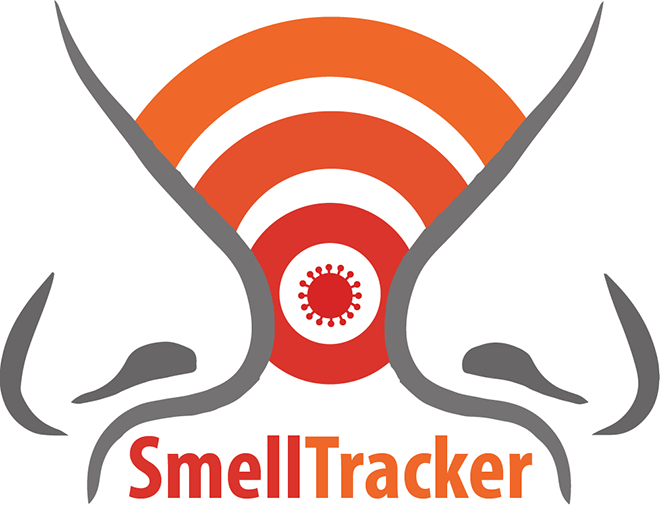
Along with fever, cough and shortness of breath - many coronavirus (COVID-19) patients report a temporary loss of their sense of smell. It appears that olfactory loss is significantly greater in COVID-19 patients compared to the loss that is often experienced during a cold, and less commonly, in non-COVID-19 influenza patients. In some countries, such as France, a patient who claims to have a sudden onset of olfactory loss will be diagnosed as a coronavirus patient - without even being tested. A similar approach is being considered in the UK. Based on this data, Weizmann Institute scientists, in collaboration with the Edith Wolfson Medical Center, developed SmellTracker - an online platform that enables self-monitoring of an individual's sense of smell - for the purpose of detecting early signs of COVID-19 or in the absence of other symptoms.
Prof. Noam Sobel's laboratory in the Weizmann Institute's Department of Neurobiology specializes in olfactory research. The researchers previously developed a mathematical model that accurately characterizes an individual's unique sense of smell - a kind of personal "olfactory fingerprint." Based on this algorithm, SmellTracker is an online scent test that guides users on how to map their sense of smell using five scents found in every home (spices, vinegar, toothpaste, various scent extracts, peanut butter, etc.). The odor test lasts about five minutes and is able to monitor sudden changes in odor perception that may be an early indication of the onset of COVID-19 disease. The researchers report that the tool they developed has already successfully identified potential coronavirus cases, which were later confirmed. Aside from personal monitoring, as more data is collected, the researchers are more likely to be able to characterize a unique olfactory fingerprint for the early detection of COVID-19.
Eight strains of coronavirus
Olfactory loss was not commonly reported in the city of Wuhan, China, where the first coronavirus outbreak took hold. Nevertheless, preliminary studies conducted in several countries, including Israel and Iran, show that this symptom appears in about 60% of patients. Scientists estimate that there are currently eight active strains of the virus. Sobel's lab believes that olfactory loss may be a differentiating symptom of the various strains. If this turns out to be true, the SmellTracker will be able to map the various outbreaks geographically.
Besides SmellTracker, Sobel's lab is distributing "scratch and smell" kits among confirmed coronavirus patients in an attempt to map their sense of smell, as well as a unique questionnaire.
The venture, which was launched with backing from the Ministry of Defense, will be officially promoted in the coming days in Sweden, France and other countries. The scent test is currently available in English, Hebrew and Arabic, and is also expected to be available in Swedish, French, Japanese, Spanish, German and Persian.
Prof. Noam Sobel is head of the Azrieli National Institute for Human Brain Imaging and Research; his research is supported by the Norman and Helen Asher Center for Human Brain Imaging; the Nadia Jaglom Laboratory for the Research in the Neurobiology of Olfaction; the Adelis Foundation; and the Rob and Cheryl McEwen Fund for Brain Research. Prof. Sobel is the incumbent of the Sara and Michael Sela Professorial Chair of Neurobiology.






